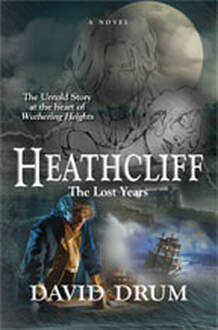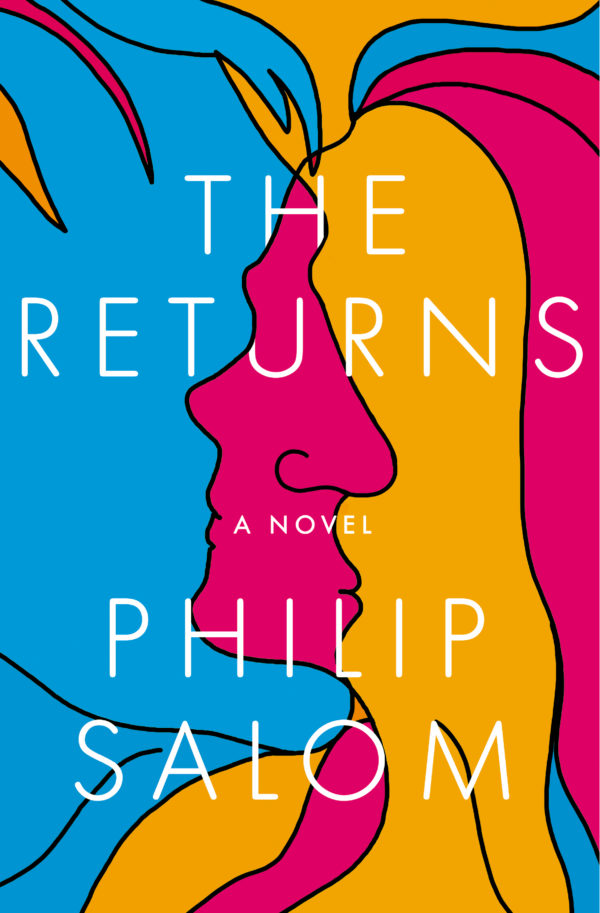
We have a copy of If Anyone Asks, Say I Died from the Heartbreaking Blues by Philip Cioffari.
To win, sign up for our Free Newsletter on the right hand side of the site and enter via the newsletter. Winner will be chosen by the first of November from subscribers who enter via the newsletter.
 Though it’s a fine sequel, Gifts for the Dead can be read on its own. Schweighardt does a wonderful job of weaving the first book through the narrative subtly, picking up and expanding on some of the themes of the first book: family ties and the sometimes wrought bond between siblings, the enduring nature of trauma and recovery, and the impact of greed on all that is precious in this world.
Though it’s a fine sequel, Gifts for the Dead can be read on its own. Schweighardt does a wonderful job of weaving the first book through the narrative subtly, picking up and expanding on some of the themes of the first book: family ties and the sometimes wrought bond between siblings, the enduring nature of trauma and recovery, and the impact of greed on all that is precious in this world.  Raoul Peck’s film, begins with the young philosopher Karl Marx’s critique of the persecution of desperate peasants, who go into forests to gather dead wood, something considered theft, for which they were arrested or beaten or even killed. Marx, a passionate but poor writer married to a well-born woman, was censored for his examination of political power.
Raoul Peck’s film, begins with the young philosopher Karl Marx’s critique of the persecution of desperate peasants, who go into forests to gather dead wood, something considered theft, for which they were arrested or beaten or even killed. Marx, a passionate but poor writer married to a well-born woman, was censored for his examination of political power. In her cover endorsement, Alison Lurie characterizes Rutkowski’s writing as “his low-key continually surprising fiction.” Just when you think you know where he’s going, he changes direction. Indeed, “deadpan” aptly describes Rutkowski’s humor. And make no mistake, there’s a lot of humor in Haywire.
In her cover endorsement, Alison Lurie characterizes Rutkowski’s writing as “his low-key continually surprising fiction.” Just when you think you know where he’s going, he changes direction. Indeed, “deadpan” aptly describes Rutkowski’s humor. And make no mistake, there’s a lot of humor in Haywire. David Drum’s Heathcliff: the Lost Years has plenty of atmosphere, conflict and obsession, presented in an historical context distinct and in an accessible way. It will appeal not only to those with some knowledge of Wuthering Heights but also who anyone who likes a dramatic action-packed story.
David Drum’s Heathcliff: the Lost Years has plenty of atmosphere, conflict and obsession, presented in an historical context distinct and in an accessible way. It will appeal not only to those with some knowledge of Wuthering Heights but also who anyone who likes a dramatic action-packed story. Six Legs Walking is a tribute to a time-honored but sadly vanishing tradition of vigorous biology conducted principally in the habitats where creatures live. Many of this reviewer’s environmental studies students figure their future depends upon mastering the science of genetics and what an elder field biologist friend dismissively refers to as “blender science.”
Six Legs Walking is a tribute to a time-honored but sadly vanishing tradition of vigorous biology conducted principally in the habitats where creatures live. Many of this reviewer’s environmental studies students figure their future depends upon mastering the science of genetics and what an elder field biologist friend dismissively refers to as “blender science.”  It’s as if, by bringing in a multitude of varying voices including some multilingual, we begin to see a common humanity in the recognition that comes with such intense vulnerability, anger, self-reflection, empathy, and perhaps above all, the radical inclusion that is not only evident throughout the poems in this collection, but a powerful underlying theme.
It’s as if, by bringing in a multitude of varying voices including some multilingual, we begin to see a common humanity in the recognition that comes with such intense vulnerability, anger, self-reflection, empathy, and perhaps above all, the radical inclusion that is not only evident throughout the poems in this collection, but a powerful underlying theme. The author of Sonnets talks about her new book, the sonnet form, its variations and appeal for her, her themes, the relationship between her vocal and poetic work, her work in progress, and lots more.
The author of Sonnets talks about her new book, the sonnet form, its variations and appeal for her, her themes, the relationship between her vocal and poetic work, her work in progress, and lots more.  The streets of Melbourne are vividly alive in this work, and nowhere more so than in its description of the natural world around the city, from Royal Park where Trevor walks Gordon to the steel carriages tram, the graffitied buildings or the flora and fauna that is everywhere in flashes of beauty.
The streets of Melbourne are vividly alive in this work, and nowhere more so than in its description of the natural world around the city, from Royal Park where Trevor walks Gordon to the steel carriages tram, the graffitied buildings or the flora and fauna that is everywhere in flashes of beauty. Serious topics such as ecofeminism, history, and ecology might sound dry, but like many magnificent thinkers before her, Mackey is in full possession of a wild and wacky sense of humor that always puts her readers at ease. I’ll also say here that while her mind is magnificent and her interests broad, her work, while stunningly layered, is always accessible.
Serious topics such as ecofeminism, history, and ecology might sound dry, but like many magnificent thinkers before her, Mackey is in full possession of a wild and wacky sense of humor that always puts her readers at ease. I’ll also say here that while her mind is magnificent and her interests broad, her work, while stunningly layered, is always accessible.